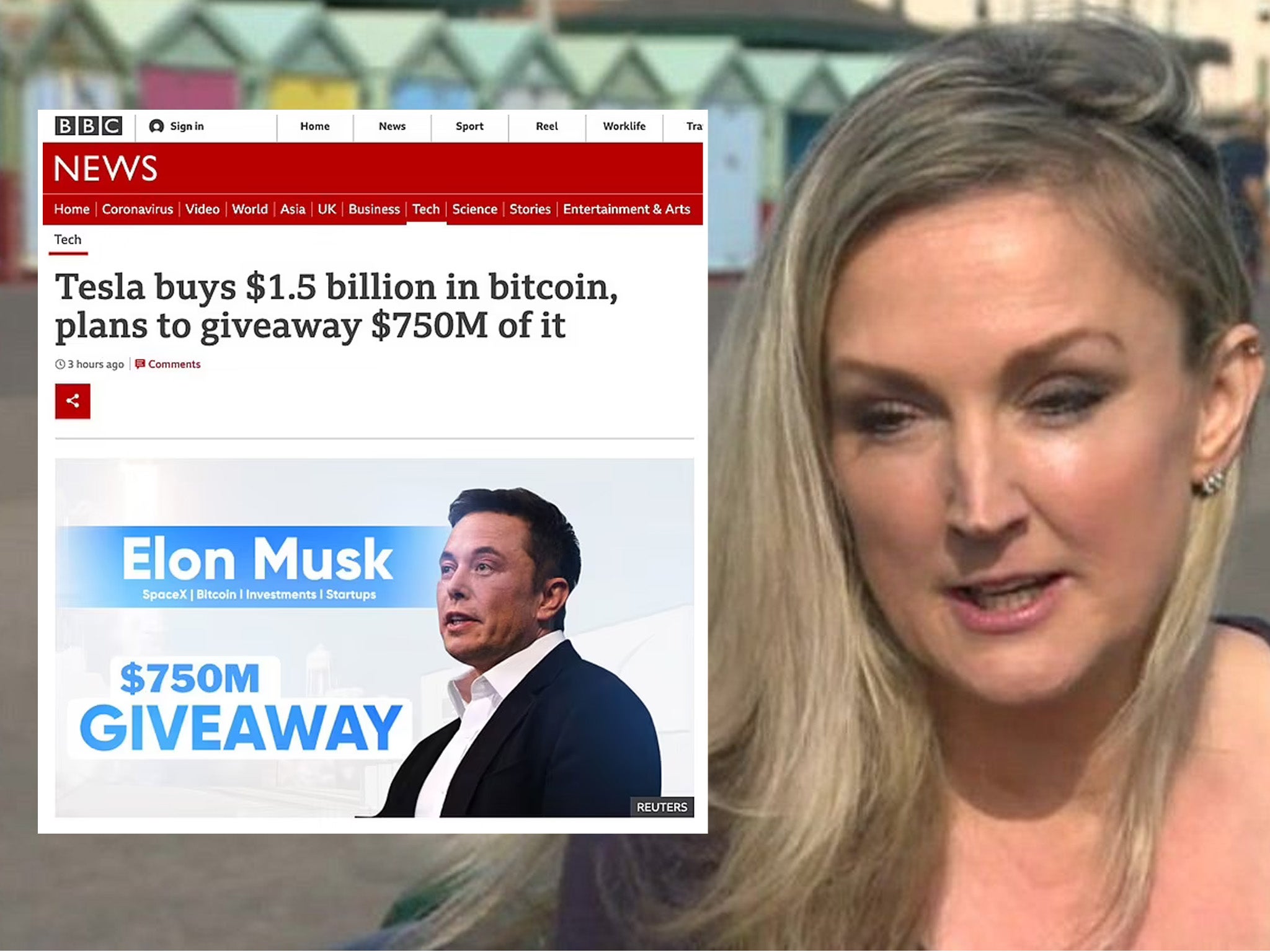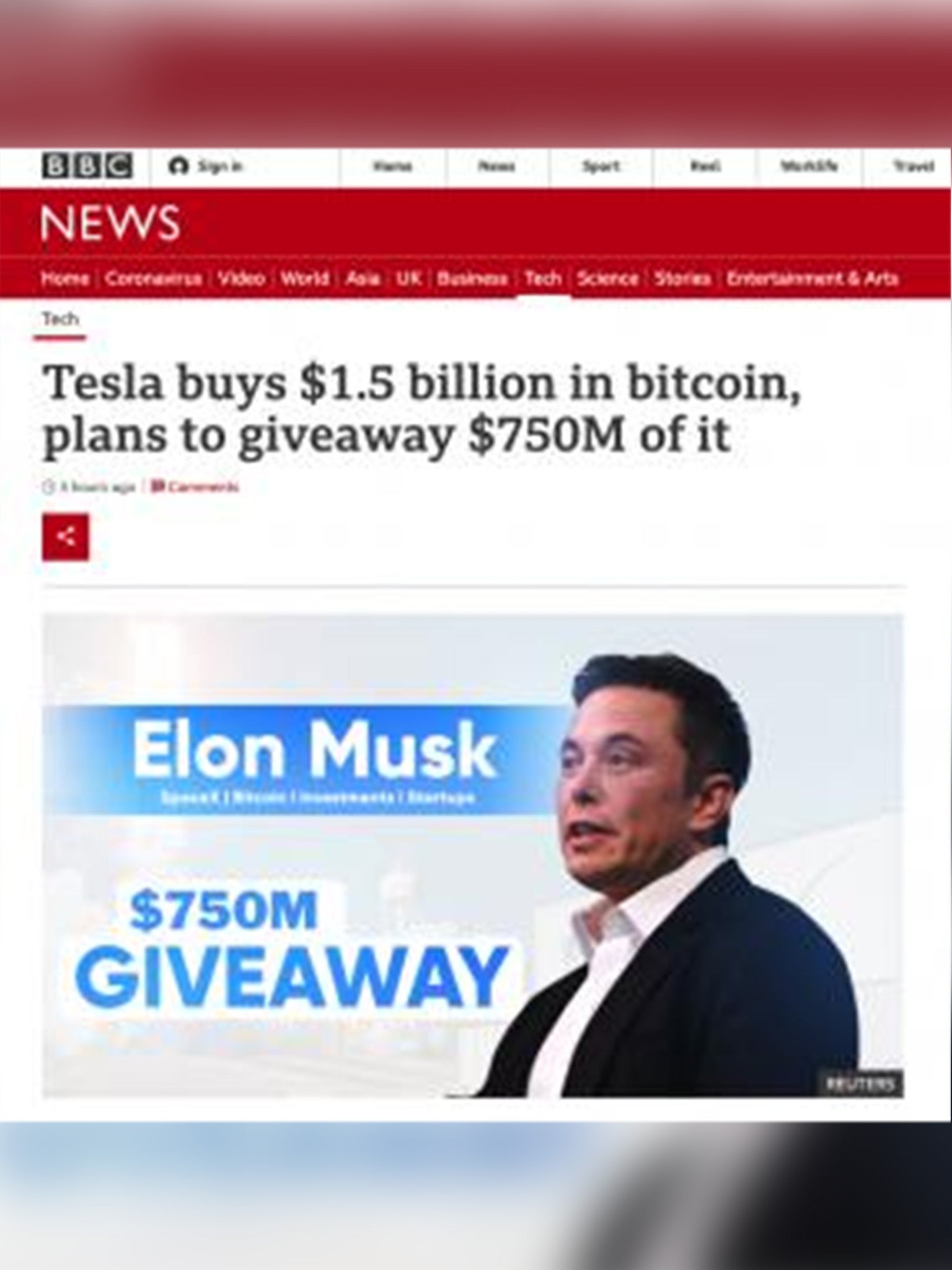‘Elon Musk’ Bitcoin scam tricks teacher into giving away £9,000 savings
Crypto-conners promised Tesla founder would pay back double

Your support helps us to tell the story
From reproductive rights to climate change to Big Tech, The Independent is on the ground when the story is developing. Whether it's investigating the financials of Elon Musk's pro-Trump PAC or producing our latest documentary, 'The A Word', which shines a light on the American women fighting for reproductive rights, we know how important it is to parse out the facts from the messaging.
At such a critical moment in US history, we need reporters on the ground. Your donation allows us to keep sending journalists to speak to both sides of the story.
The Independent is trusted by Americans across the entire political spectrum. And unlike many other quality news outlets, we choose not to lock Americans out of our reporting and analysis with paywalls. We believe quality journalism should be available to everyone, paid for by those who can afford it.
Your support makes all the difference.A school teacher was conned out of her savings by a bitcoin scam that promised Elon Musk would "double her investment".
Julie Bushnell plunged £9,000 into a fake scheme that claimed the billionaire entrepeneur was having a Bitcoin "giveaway".
The scam was hosted on a website made to look like BBC News with an article claiming Tesla, Mr Musk's company, had bought $1.5bn worth of bitcoin and was planning to give away half the sum.
Ms Bushnell, a cryptocurrency investor from Hampshire, had been setting her money aside for a house but opted to deposit it through a link on the website on the promise she would get double the amount back.
As it became clear the reciprocal payment would never arrive, she realised she had fallen victim to a scam.
She told The Argus: "I stayed up all night searching the internet of ways in which I could get this money back.
"I tried to sleep but couldn’t as I was having constant panic attacks and couldn’t stop shaking and crying."
Ms Bushnell said she reported the transaction to her bank, Lloyds, but was told it could not help. She said she went on to contact Sussex Police and Action Fraud, who forwarded details of the incident to the National Fraud Intelligence Bureau.

She has been left distraught by the experience, telling the BBC: "They have robbed me of my dignity, self-respect, self-worth and strength. They have sucked all the goodness of life out of me."
"I want to raise awareness of this scam so it doesn't happen to other vulnerable people," she said.
The fake site remains active but the BBC said it was taking action to have it closed down. The broadcaster urged people to "check the veracity" of websites and not to supply any personal information.
Cryptocurrency scams have proliferated in recent years alongside the astronomical rise of blockchain transactions.
Research by crypto-transactions tracker Whale Alert suggests so-called giveaway gangs were on track to double their number of victims in 2021 compared with last year.
Whale Alert said the gangs had made more than $18m (£12.7m) worldwide and netted more than 5,600 victims by March, compared with 10,500 in the whole of 2020. Last year’s figure was almost five times that of 2019.
Bitcoin maintains the highest profile of the various digital currencies, though it suffered a crash in value of nearly £15,000 per coin this week after none other than Elon Musk said his company would no longer accept crypto-payments due to their huge environmental impact.



Join our commenting forum
Join thought-provoking conversations, follow other Independent readers and see their replies
Comments